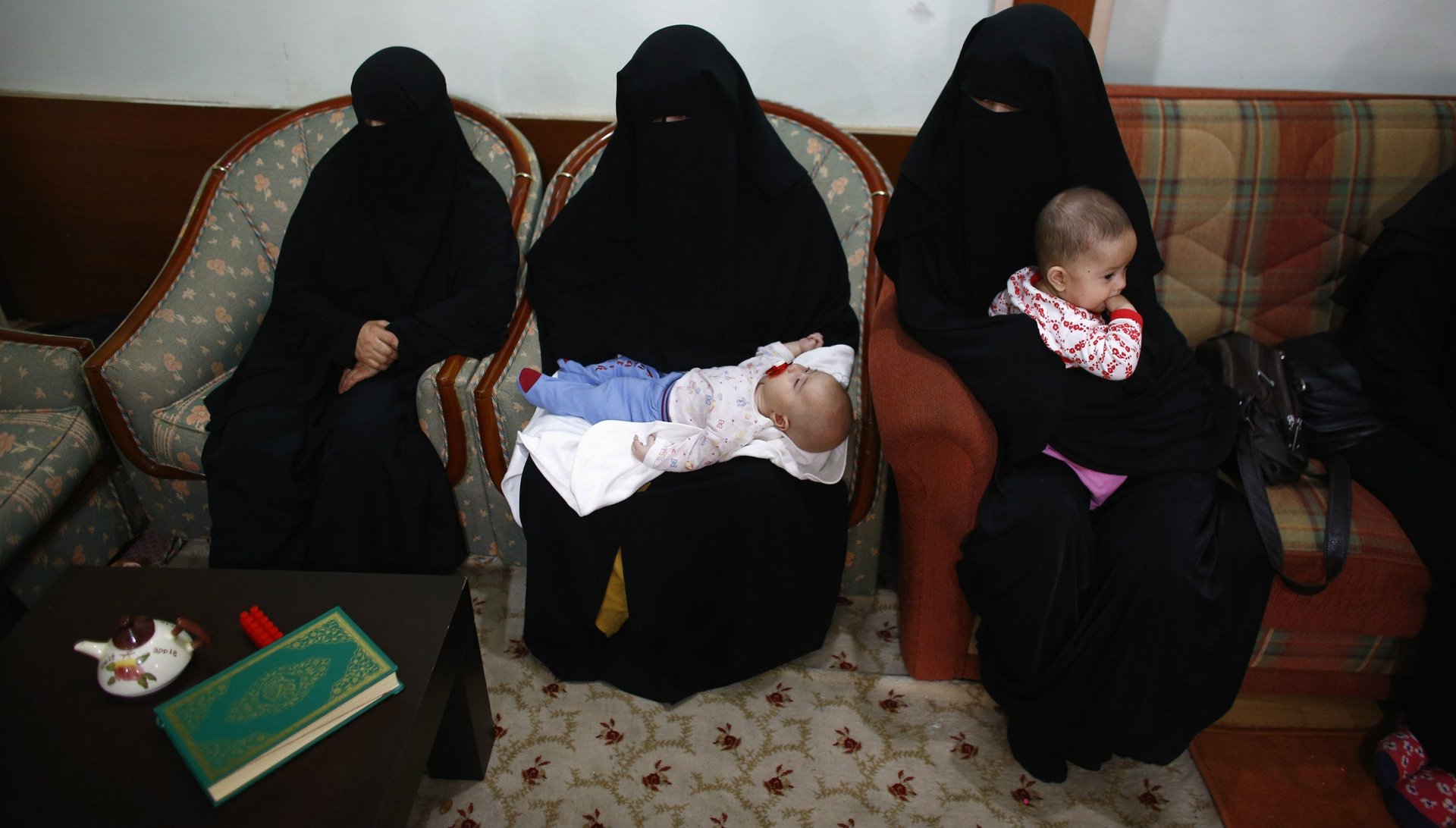A new law in China may make it illegal for men to force women to wear a burqa
This post has been corrected.


This post has been corrected.
China’s highest court, the Supreme People’s Court, recently issued a long list of new crime names, based on amendments to the Criminal Law which came into effect on Nov. 1. The Criminal Law amendments cover everything from identity theft to the transport of substances used to make illegal drugs. High on the list (link in Chinese) is the crime of “forcing [someone] to wear terrorist, extremist clothing.”
The full text of the amendment reads: “Where methods such as violence or coercion are used to compel others to wear or adorn themselves with apparel or emblems promoting terrorism or extremism, it is punished by up to three years imprisonment, short-term detention or controlled release, and a concurrent fine.”
Most people in China’s Xinjiang Uyghur Autonomous Region, a predominantly Muslim area that has been riven by violent clashes, often between citizens and police, in recent years, don’t wear terrorist or extremist clothing, a research fellow at the Xinjiang Academy of Social Sciences, a government-affiliated think tank, told the paper. And most of those who do have “forced to do so, and some have been fooled into doing so by being told that what they are wearing is normal religious costume,” the paper said, citing the researcher.
The only type of clothing mentioned in an article in the Global Times, a state-backed newspaper, is the burqa, the head to toe covering that also hides a woman’s eyes, which is also banned in some European cities. It quotes a local official explaining that “by covering the eyes, the burqa represents some kind of backwardness.” Forcing someone to wear “extremist” clothing could carry a three-year jail term, it notes.
Beijing has imposed increasingly draconian rules in Xinjiang in recent years, essentially making it illegal to practice the Ramadan fast for many Muslims there, banning women from wearing burqas in public in the local capital of Urumqi, and demanding men shave full beards. Uyghurs have also been fleeing China by the thousands, with many landing in Turkey.
The recent law, with its focus on the people who force others into “terrorist” or “extremist” clothing, seems pointedly crafted to check the power of the (all male) imams in the area. Uyghurs traditionally practiced a moderate form of Islam, but some have become more conservative in recent years, including adopting the burqa, in the face of a crackdown on religion from Beijing. In 2014, a Urumqi man was jailed for refusing to shave his beard and forcing his wife to wear a burqa, the Global Times notes.
Outside of the Xinjiang capital of Urumqi, there’s no law preventing a woman in China from donning a burqa of her own volition.
Correction: An earlier version of this post incorrectly referred to”forcing [someone] to wear terrorist, extremist clothing” as the full content of the amendment. That was the court’s summary of the amendment, the full text has been added.